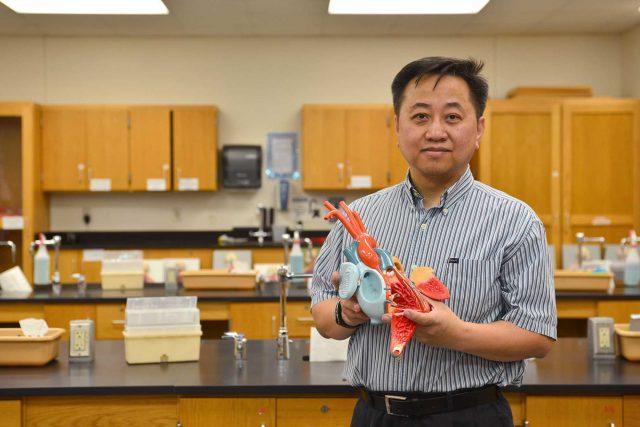By Hannah Lathen/ managing editor
Just after I turned 19, I was diagnosed with an autoimmune disease, a disease where a person’s immune system starts attacking healthy cells. This group of diseases can appear at any point in someone’s life, and most people are unaware of it until diagnosed, which was my case.
I was a normal, healthy person until I wasn’t.
Over the course of a few weeks in April and May of 2015, I started getting random body pains. I would wake up with a new one in a new place every day, from my calf to my finger. I was flying back from a trip into DFW when my whole body became engulfed in pain.
About a week later, the all-over pain came back. I started having a hard time breathing and was coughing nonstop. My mom took me to the hospital, where they said I had a urinary tract infection. Since they wouldn’t do X-rays on me because they said I was too young, I left without answers for the pain in my body.
The next day, I woke up unable to walk from pain. My parents had to help me to the car. I went to a different hospital’s emergency room, where they ran all kinds of tests and found a laundry list of things wrong including strep throat, mononucleosis, pneumonia in both lungs with an abscess on one of them. My heart rate was extremely high. They told me I could go home but advised me to come back up if my heart rate didn’t go down. It never did.
The next day, I went back and was admitted to a room after more tests. I remember I could still talk and felt somewhat OK. The next day, I didn’t have the energy to talk, eat, sit up or even have the TV on. Every ounce of energy was drained, and the doctors still could not figure out what exactly was wrong. I began coughing up blood and received blood transfusions.
On maybe my fourth day in the hospital when I was scheduled to have a lung biopsy, my kidneys started failing.
A kidney biopsy finally revealed my disease; granulomatosis with polyangiitis, a rare autoimmune disease that affects the lungs, kidneys, ears, nose and throat with fewer than 200,000 U.S. cases per year.
From then on, I was given a heavy dose of treatments with steroids, Rituxan, a form of chemotherapy, and plasma exchanges. I was in the hospital for 27 days.
After going home, I was put on medication to keep my immune system suppressed. It took several months for my lungs to heal and for me to walk again. After about seven months, my doctors declared I was in remission.
Today, I just have to keep up with my medicines and see about four different doctors regularly with testing. I operate completely normally and try to stay healthy.
If there is anything others should take away from my experience, it is to find solid answers to medical questions as soon as possible and be aware of unexpected problems.
I was a healthy, normal person, as are many people. No one is exempt, and being active in seeking solutions is imperative.


























